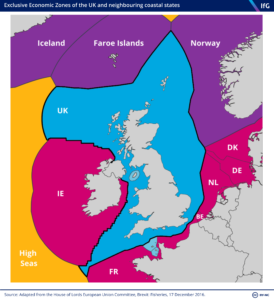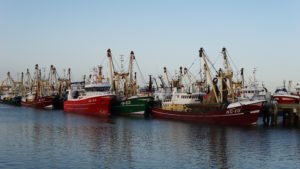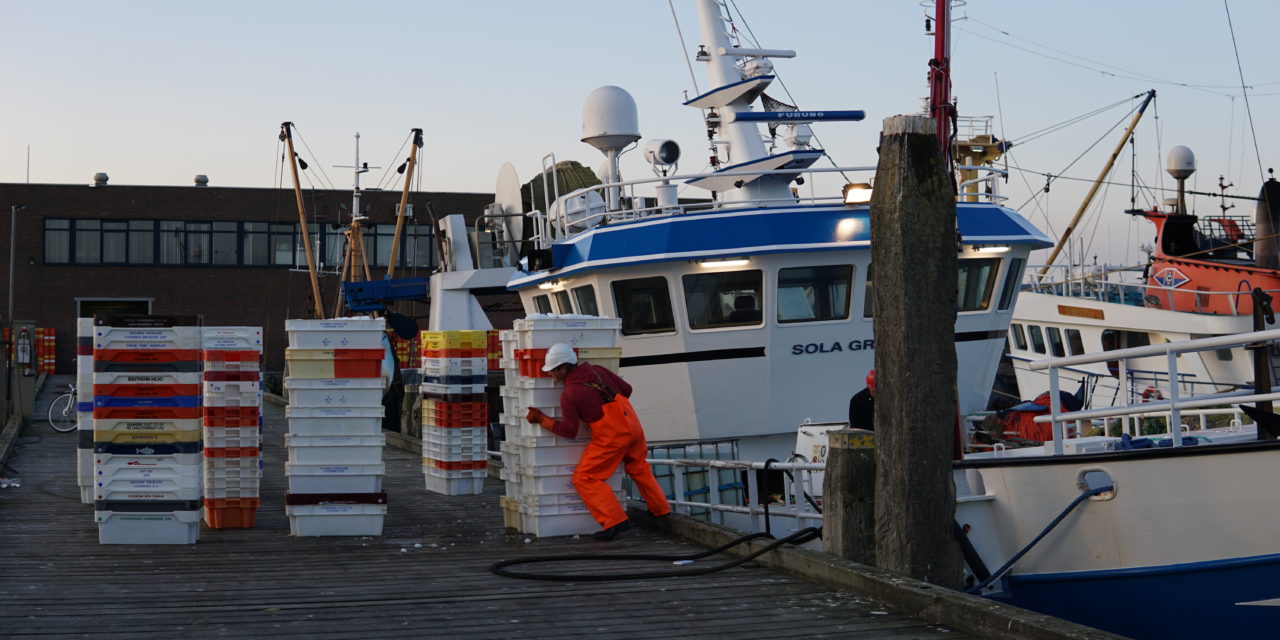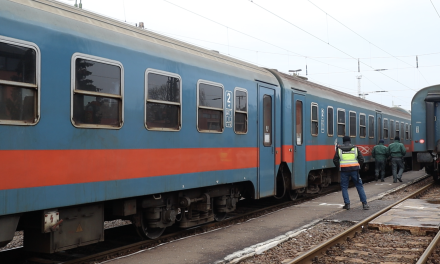Brexit negotiations seem to have come to a standstill as a dispute on fishery threatens an agreement. The EU demands access to British waters for European fishermen, while the UK wants full control of its own waters.
Brexit waters
The UK will officially leave the EU’s Common Fishery Policy (CFP) on 31 December as the transition period after Brexit comes to an end. The CFP was put in place in 1970 to conserve fish stocks and manage European fishing fleets. “Its goal is to foster a dynamic fishing industry and ensure a fair standard of living for fishing communities.”, according to the EU. Under the CFP member states handed over sovereignty off their Exclusive Economic Zone (EEZ), which stretches to 200 nautical miles of coast. Within this European EEZ fishing quotas were negotiated to ensure the sustainability of fishing grounds. These quota have led to debate, especially as British fishermen started losing control over British waters. Over time quota were sold to fishing companies in other member states resulting in a disproportionate presence of EU fishermen in British waters. “European fishermen take 173 times more herring, 45 times more whiting, 16 times more mackerel and 14 times more haddock and cod out of UK waters than British fishermen do.”, according to research of the NAFC Marine Centre in the Shetlands.

In blue the British Exclusive Economic Zone after leaving the EU
Fighting over crumbs
Unsurprisingly a vast majority of British fishermen supported the Brexit campaign as they seeked to reclaim ‘their waters’. UK prime minister Boris Johnson has repeatedly stated he won’t turn his back on the fishing industry. The sovereignty of the UK as a coastal nation, including control over its waters, seems to be an important focus and thereby explanation for the British attitude. Although fishery doesn’t represent significant economic value, only 0,1% of British GDP, there is a huge symbolic value involved. This also applies to the EU, which refuses to sign a free trade deal as long as EU fishing vessels won’t have access to British waters. This free trade deal is vital to the UK’s fishing industry as most fish is being exported to the EU, but for now a compromise seems far off.

Dutch fishing vessels in the port of Harlingen
No deal, no perspective
However a compromise seems to be exactly what the Dutch fishing industry needs, an industry which is highly reliant on access to British waters. According to research of the Wageningen University the industry could lose 38% of its total annual catch in case of a no-deal scenario. Obviously it would be a disaster for the Dutch fishing industry to be denied access to British waters. This was confirmed by Johan Nooitgedagt, chairman of the Dutch Fisherman’s Association “A no-deal Brexit would cause an enormous limitation to our fishing opportunities. A lot of companies will cease to exist”. There is no exit-strategy for Dutch fishermen, although the deadline for an agreement is approaching. Nooitgedagt states “We still hope for and believe in an agreement which will grant Dutch fishermen access to UK waters .. we also simply do not have an exit-strategy due to lack of alternatives. Without access to British waters the Dutch fishing industry will simply not exist as it does today”.




